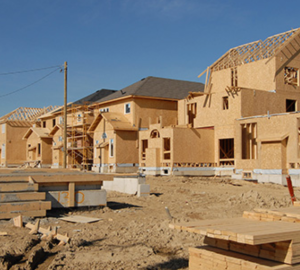There are numerous reasons that might compel you to sell your home, such as the need to relocate to be near your family, a desire to scale down your living space, or financial difficulties with mortgage payments.

When you have the flexibility to choose your moving date, it’s beneficial to plan strategically the timing and method of listing your home. This approach can help you attract buyers, maximize your profit, and simplify the process of purchasing a new home if that is your subsequent step.
If you’re undecided about selling, you have several options: you can list your property to capitalize on the current low inventory, you can hold off to see how interest rates and inflation evolve, or you can choose to remain in your existing home for the time being.
Here are three arguments against selling your home in 2024, contrasted with three reasons why selling within the next year could be advantageous:
- Delay the sale: If you’ve recently purchased or refinanced your home.
- Delay the sale: If you’re concerned about the affordability of your next purchase.
- Delay the sale: If you’re anxious about finding a suitable home to move into.
- Proceed with the sale in 2024: If high interest rates do not deter you.
- Proceed with the sale in 2024: If you have a clear understanding of your home’s market value.
- Proceed with the sale in 2024: If you have a pressing need to relocate.
Delaying the Sale: Recent Home Purchase or Refinancing
If you’ve bought or refinanced your home within the last few years, selling in the near future may not be a priority. Ideally, your low mortgage payments should have alleviated any financial pressures.
Prior to 2022, many homeowners had the opportunity to secure mortgage rates below 3%, making the idea of selling in the near term much less appealing. Unless other circumstances necessitate a move, it’s advisable to enjoy the low rate you’ve locked in and continue to accumulate equity in your home.
Mortgage rates have experienced several fluctuations since 2022, reaching a peak of 7.79% for a 30-year fixed-rate mortgage in October 2023, according to data from Freddie Mac. As of March 28, 2024, the reported average rate for a similar mortgage was 6.79%.
If you’ve secured an interest rate below 3%—or even 2%, as was the case for some homeowners—you, you would be reluctant to see your rate more than triple for a new home. Your decision to remain with your current property based on mortgage rates is a common one.
Danielle Hale, chief economist for Realtor.com, notes, “Although the mortgage lock-in effect is expected to decrease, it will continue to prevent a significant number of homeowners from selling in 2024. According to the latest data, 90% of outstanding mortgage debt is at a rate below 6%, with 65% at a rate less than 4%.”
Hale suggests that homeowners may become more inclined to move once mortgage rates fall below 6%. This could be a pivotal factor to consider when deciding on the sale of your home.
Concern Over the Affordability of a Subsequent Home
In recent years, the concern over being able to afford a subsequent home purchase has been influenced by the increasing prices in the housing market and a shortage of new properties for sale. With the addition of interest rates hovering between 6% and 7%, the financial advantages of purchasing a new home may seem minimal. It is prudent to hold off on selling your current home if the timing doesn’t seem appropriate.
Even if you have substantial equity in your home, the calculation of your purchasing power might be affected by the increased interest payments you would need to make each month.
As Lisa Sturtevant, chief economist for Bright MLS, notes, “This is a challenging financial calculation, and it’s causing more discretionary sellers to stay out of the market at the moment.” If the home you aspire to own next is not within your reach financially, it is logical to delay listing your property for sale.
Apprehensions Regarding Finding a Suitable Subsequent Home
Despite a slight increase of 0.3 months in housing inventory year over year in February, according to a report by the National Association of Realtors, the availability of homes on the market remains low. Many homeowners are currently choosing not to sell, and while the number of buyers has decreased from the peak of the coronavirus pandemic, more are returning to the market than might be anticipated.
Orphe Divounguy, senior economist for Zillow, states, “Despite the challenges of affordability, buyers are finding solutions to make the numbers work. There is a significant number of millennials looking to enter the realm of homeownership. Lower inflation has led to increased real wages and financial wealth, and we’re also witnessing a surge in population growth. All these elements contribute to the demand for housing. The primary constraint continues to be the lack of inventory. The insufficient supply of homes for sale is what keeps prices elevated.”
Reasons to Consider Selling Your Home in 2024
In 2023, mortgage rates climbed to levels higher than those experienced in recent years. Such a situation may lead some homeowners to decide to stay put in their existing homes. However, for some, the interest rate is not a primary concern.
Mike Reynolds, Vice President of Investment Strategy at Glenmede, points out that some buyers might not be as sensitive to interest rates. You might be planning to pay cash for your next property, or you might have sufficient equity in your current home to negotiate a lower mortgage rate for your next purchase.
The extended period of interest rates above 6% has also helped potential homebuyers adjust to the idea of higher mortgage costs. While this may involve budget realignment, it doesn’t rule out the possibility of purchasing a home.
Orphe Divounguy, a senior economist at Zillow, observes that buyers have become comfortable with the idea that a mortgage rate between 6% and 7% is now standard. Additionally, it’s impossible to perfectly predict the market’s timing. If you’re ready and willing to move, selling in 2024 could be the right decision since the future is uncertain.
Awareness of Your Home’s Market Value
The U.S. housing market continues to attract buyer interest, but the intense competition and inflated sale prices seen in 2021 are less common. If you decide to sell in 2024, be prepared for buyers to be more cautious about offering over the asking price, and they may not engage at all if the price is too high.
Divounguy notes that the homes that are selling quickly and receiving multiple offers are those that are competitively priced and have all the marketing features, such as 3D tours and professional photos. Unless your real estate agent advises otherwise, based on comparable sales in your area, it’s unlikely that your starter home will sell for much higher than the asking price without an appraisal contingency. Buyers are scrutinizing their budgets and making offers that align with their financial plans and their perception of your home’s value.
Necessity to Relocate
If a move is essential for any reason, it’s still possible to sell your home and find a new one. Job loss might raise concerns about continuing mortgage payments, making selling a viable option. Others might be moving due to a cross-state relocation, a need for more space as their family grows, or the requirement for a larger dedicated workspace for remote work.
A profitable sale and purchase of a new home remain achievable, but it requires careful preparation and setting realistic expectations.
Danielle Hale, chief economist, suggests that homeowners should evaluate their home equity situation. With the typical listing price having increased by 40% over the past five years, many sellers have a substantial equity cushion. This means that they are likely to receive proceeds from the sale that can be used to reduce the amount they need to borrow for their next home purchase.
However, it’s important to be aware that the Federal Reserve is unlikely to rapidly lower interest rates in the event of an economic downturn. While mortgage rates are not directly tied to the Fed’s funds rate, they often mirror its movements.
Reynolds anticipates that mortgage rates will remain high throughout the year, stating that the Fed will be cautious not to reignite the stubbornly persistent inflation.



